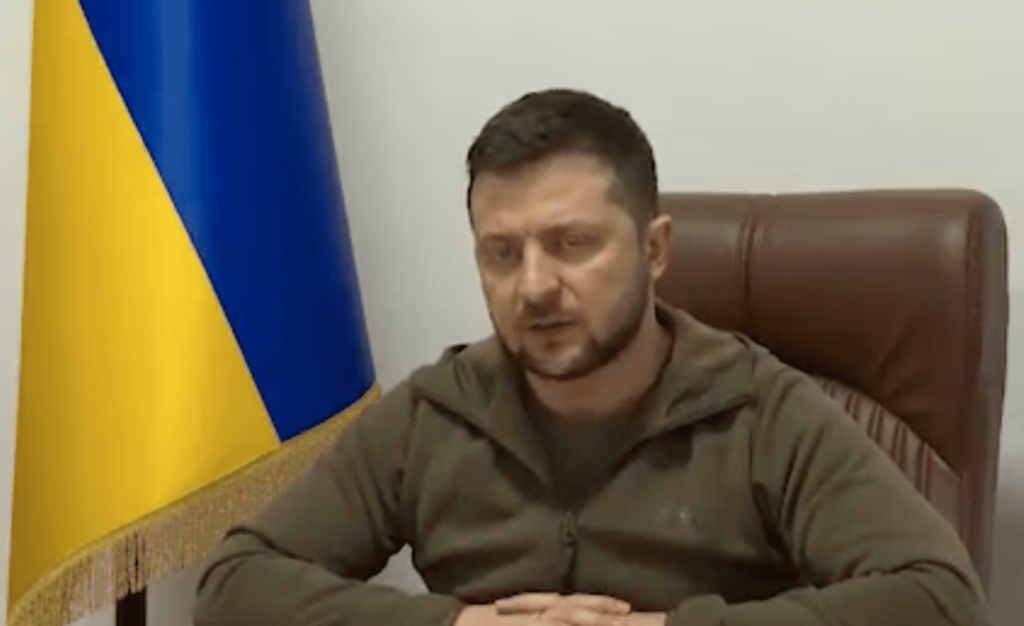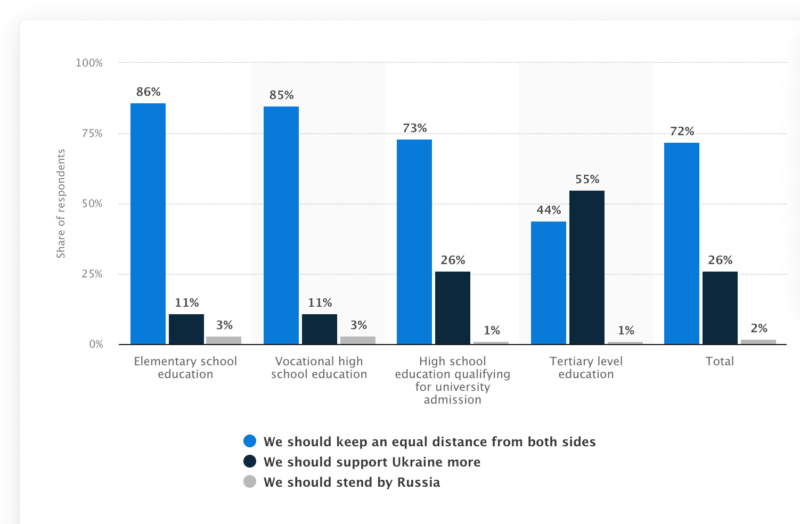Viktor Orban Defends Hungary, Not Ukraine

I see that this clip is making the social media rounds. In this address to those gathered at the NATO summit, President Zelensky thanks every country in Europe by name, but singles out Hungary and its PM Viktor Orban for opprobrium:
This really is quite something. Wait for the total admonishment of Hungary’s Viktor Orban. pic.twitter.com/zVrkwNY1eL
— Jack Parrock (@jackeparrock) March 25, 2022
I get it — though it does sound pretty ungrateful to me. As a frontline state bordering Ukraine, Hungary has taken in hundreds of thousands of refugees. The Hungarians have said, correctly, that it’s easy to tell the difference between a refugee and an asylum seeker — and they’re helping refugees. Orban’s government also supported EU sanctions against Russia — as head of an EU member state, he had the power to veto them — and has criticized the invasion. But Zelensky here faults Orban for being more concerned about his own country than Ukraine, and for representing the interests of his own people instead of Zelensky’s.
The fact is, Hungary gets 80 percent of its natural gas from Russia. Eighty percent! Orban doesn’t want his people to freeze in the dark next winter. Hungary is not a wealthy country, and is less equipped than many western European countries to withstand material shocks from the war. Viktor Orban has to answer to the Hungarian people, not to Volodymyr Zelensky and the western media. Besides, once food and energy shortages start rolling across Europe, we will see how committed European publics are to holding the hard line against Russia. Same in the United States.
In any case, Zelensky is not being entirely honest by singling out Hungary in this way (and playing the Holocaust card too — that’s what his reference to the shoes by the Danube means). The New York Times reported on Zelensky’s remarks, and said, in part:
Hungary has resisted some sanctions, especially against Russian energy, but it has not been alone. Germany and other countries are resisting such a move on the grounds that it would hurt European economies disproportionately. [Emphasis mine — RD]
In a video posted to social media on Friday morning, Mr. Orban rejected supporting sanctions on Russian energy.
Given Hungary’s dependence on Russian energy, the prime minister said, “sanctions would mean Hungary’s economy would quickly slow down and stop.”
“This is unacceptable. It is contrary to the interests of Hungarians,” Mr. Orban said.
Yes, it is. And say, what do the Hungarian people think? According to this opinion poll shortly after the war started, almost none of them support Russia, but by a nearly three-to-one margin, they want Hungary to stay out of this war, keeping itself equidistant from both Russia and Ukraine. Look:

I’m trying to find more recent polling, but I would be very surprised if the numbers changed. Notice that the only demographic group in which a majority believe that Hungary should be more pro-Ukraine are university-educated professionals — precisely the social class that would be best prepared to withstand material pain from a cutoff of Russian gas. The Orban government has said that it would continue to send humanitarian aid, and would allow humanitarian aid to enter Ukraine through Hungary, but that it would not allow weapons to enter Ukraine from this country. If this stance is hurting the Orban government, you wouldn’t know it from the election polls, which show Fidesz, the governing party, with a widening seven-point lead only ten days before the election.
By the way, last weekend a Hungarian was listening to a visiting Englishman and me praise the beauty of Budapest. He told us that the city did not look like this 25 years ago. Budapest was badly damaged in the Second World War, and as it had a Communist puppet regime after the war, it did not have the money to do much rebuilding. What we visitors see and admire, he said, much of it only came about in this century — in particular after Viktor Orban rescued the Hungarian economy from the near-collapse to which the ruling Socialist government had led it from 2002-2010.
My Hungarian friend said that this accounts for the extreme reluctance of most Hungarians to get involved in the Russia-Ukraine war. They had right in front of them until pretty much the day before yesterday the cost of war written on their cityscape. They know how fragile everything is, and how much you can lose in war. They would rather avoid it if they could.
I expect you American and western European readers will be reading, hearing, or seeing reporting talking about how Zelensky gave Orban hell in this address. You should know, though, that on Ukraine war policy, Orban represents the interests not of the Ukrainian people, but his own. Imagine that.
By contrast, this video is just out:
Biden tells the 82nd Airborne they’re going to Ukraine:
“You’re going to see when you’re there, you’re going to see women, young people standing in the middle, in the front of a damn tank saying ‘I’m not leaving.'” pic.twitter.com/M2nu77yUw7
— RNC Research (@RNCResearch) March 25, 2022
Biden just concluded a NATO summit in Brussels. Did he just telegraph a NATO decision to invade Ukraine to support the Zelensky government? Or was he just misspeaking in senile fashion? Assuming he really does intend to order US troops into Ukraine, shouldn’t the US Congress be consulted before American soldiers enter a combat zone in which they may well be shot at, or shoot, Russian soldiers? This really could be the start of World War III. How on earth would inserting US soldiers into this war zone be in the vital strategic interest of the United States? I understand why it is in the interest of President Zelensky, but he doesn’t answer to the American people. Joe Biden does. Or so we are informed.
Subscribe for as little as $5/mo to start commenting on Rod’s blog.